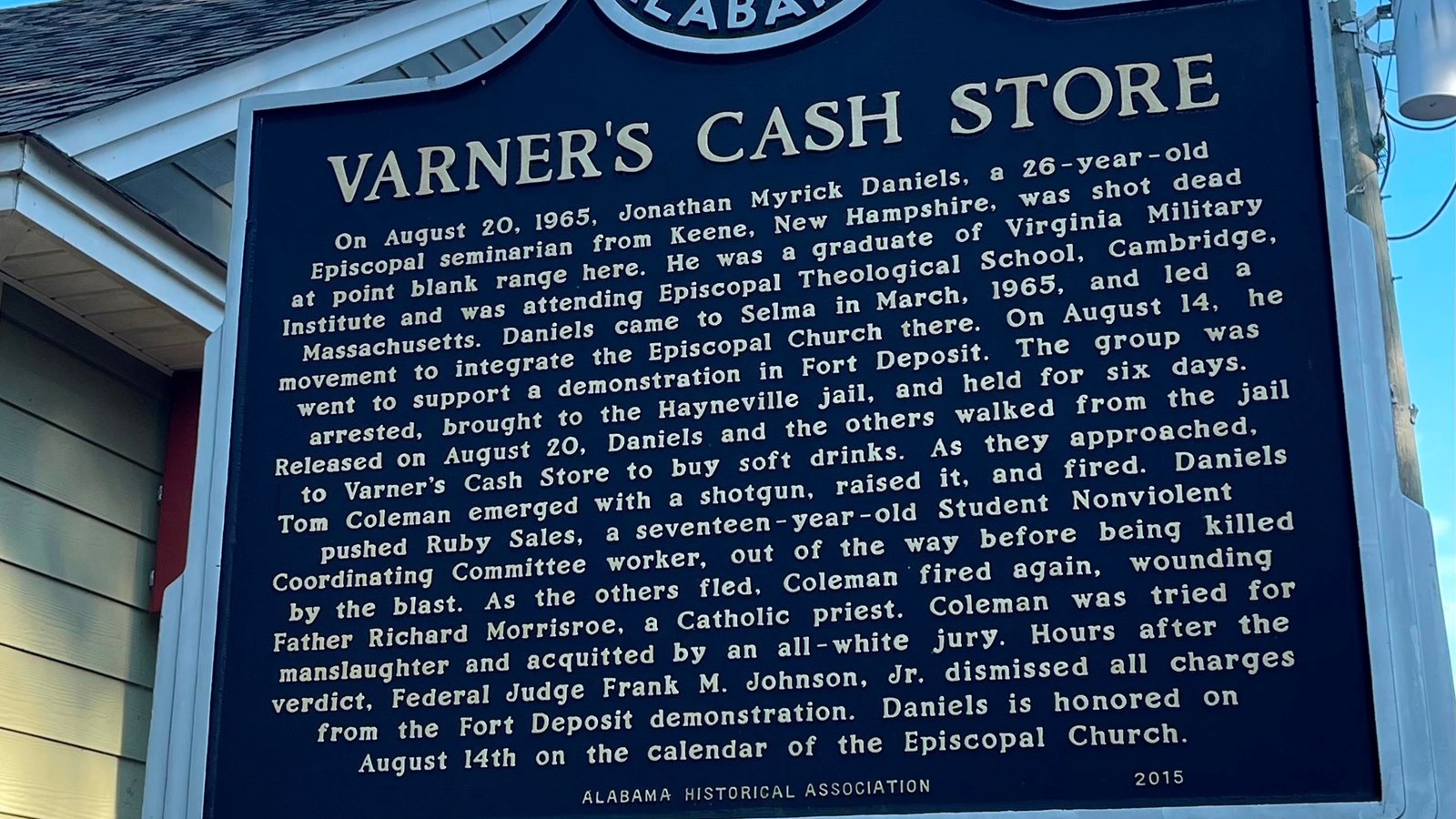Last updated: July 31, 2025
Place
Jonathan Daniel Murder Site/Cash’s Store

NPS/BrittanyAnn Robinson
The murder of Jonathan Daniels, a 26-year-old Episcopal theological seminary student, at Cash’s Store in Hayneville, Lowndes County, Alabama, made him a martyr of the Civil Rights Movement. Daniels, who had been volunteering in Lowndes County and Selma for several weeks, was part of a group of civil rights workers that included Ruby Sales, a Black teenager, and Father Richard Morrisroe, a Catholic priest. On August 20, 1965, the group went to Cash’s Store to buy soft drinks after being released from jail for participating in a protest. It was here that they encountered Tom Coleman, a local Special Deputy known for his hostility toward civil rights activists.
As the group exited Cash’s Store, Coleman, armed with a shotgun, threatened them, shouting, “Get off this property or I’ll blow your goddamn head off!” When Coleman aimed his shotgun at Ruby Sales, Daniels instinctively pushed her out of the way, taking the fatal blast to his chest. Father Morrisroe was also shot in the back as he tried to flee but survived the attack. Daniels’ heroic action in saving Sales’ life was a stark reminder of the ever-present danger faced by civil rights workers, particularly in a county as racially tense as Lowndes.
Cash’s Store, the site of this murder, was a small, unassuming building, typical of rural Alabama. It became infamous as the location where a young, idealistic seminarian was killed for standing up to racial injustice. Daniels’ death had a profound impact on the movement. Stokely Carmichael, then a leader in the Student Nonviolent Coordinating Committee (SNCC), had initially hesitated to allow White volunteers like Daniels into Lowndes County, knowing the dangers. However, Daniels’ passion and commitment swayed Carmichael, making his death all the more personal and devastating. Carmichael later reflected on how Daniels’ murder shifted the thinking of activists, many of whom began to reconsider the need for self-defense.
Coleman, despite being charged with Daniels’ murder, received widespread sympathy from the White community due to his long-standing career with the state highway department and connections in law enforcement. Many Whites viewed Daniels and other White activists as "race traitors," intensifying the racial divide. Coleman was acquitted by an all-White jury, further building local tensions.
